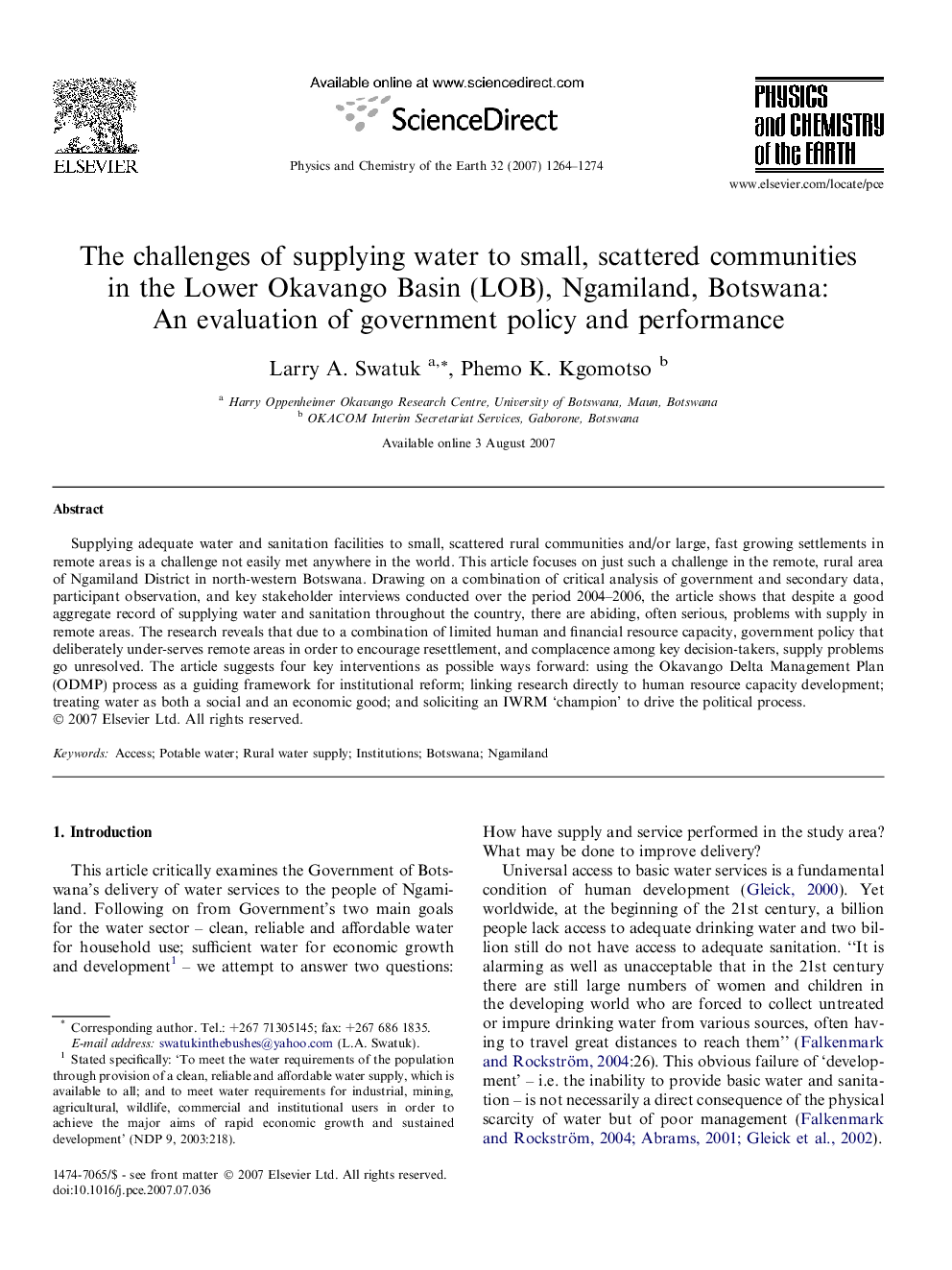| کد مقاله | کد نشریه | سال انتشار | مقاله انگلیسی | نسخه تمام متن |
|---|---|---|---|---|
| 4721831 | 1639403 | 2007 | 11 صفحه PDF | دانلود رایگان |

Supplying adequate water and sanitation facilities to small, scattered rural communities and/or large, fast growing settlements in remote areas is a challenge not easily met anywhere in the world. This article focuses on just such a challenge in the remote, rural area of Ngamiland District in north-western Botswana. Drawing on a combination of critical analysis of government and secondary data, participant observation, and key stakeholder interviews conducted over the period 2004–2006, the article shows that despite a good aggregate record of supplying water and sanitation throughout the country, there are abiding, often serious, problems with supply in remote areas. The research reveals that due to a combination of limited human and financial resource capacity, government policy that deliberately under-serves remote areas in order to encourage resettlement, and complacence among key decision-takers, supply problems go unresolved. The article suggests four key interventions as possible ways forward: using the Okavango Delta Management Plan (ODMP) process as a guiding framework for institutional reform; linking research directly to human resource capacity development; treating water as both a social and an economic good; and soliciting an IWRM ‘champion’ to drive the political process.
Journal: Physics and Chemistry of the Earth, Parts A/B/C - Volume 32, Issues 15–18, 2007, Pages 1264–1274